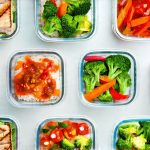Chronic inflammation is increasingly recognized as a significant factor in many urological conditions, impacting everything from interstitial cystitis/bladder pain syndrome (IC/BPS) to prostatitis and even kidney stone formation. Traditional dietary approaches often fall short when addressing these specific needs, leaving individuals seeking more targeted solutions. This isn’t about restrictive dieting; it’s about proactively nourishing your body with foods that actively combat inflammation while simultaneously supporting optimal urinary tract health. Understanding the connection between what we eat and how our urological system functions is the first step towards regaining control and improving quality of life.
Many conventional diets focus on eliminating specific foods, often leading to feelings of deprivation or unsustainable lifestyle changes. An anti-inflammatory approach, however, emphasizes abundance – flooding your body with nutrient-rich foods that naturally reduce inflammation markers and provide the building blocks for healing. This means prioritizing whole, unprocessed foods, healthy fats, lean proteins, and an array of colorful fruits and vegetables. It’s a holistic strategy built on long-term well-being rather than quick fixes, recognizing that consistent dietary choices are powerful tools in managing urological health alongside any recommended medical treatments.
Understanding the Anti-Inflammatory Urology Diet
This diet isn’t a one-size-fits-all solution, as individual sensitivities and conditions vary. However, the core principles remain consistent: minimizing inflammatory triggers and maximizing nutrient density. Central to this approach is recognizing that inflammation isn’t always visible; it often manifests internally as chronic discomfort or dysfunction. Foods high in refined sugars, processed foods, unhealthy fats (trans fats specifically), and certain additives can all contribute to systemic inflammation, potentially exacerbating urological symptoms. Conversely, foods rich in antioxidants, omega-3 fatty acids, and fiber actively combat this process.
The goal isn’t necessarily elimination, but moderation and conscious substitution. For example, instead of completely removing carbohydrates, focus on complex carbohydrates from sources like sweet potatoes, quinoa, or brown rice – these provide sustained energy without the rapid blood sugar spikes associated with refined sugars. Similarly, unhealthy fats can be replaced with healthy fats from avocados, olive oil, nuts, and seeds. This shift in perspective allows for a more sustainable and enjoyable dietary pattern, preventing feelings of restriction that often lead to failure. It’s about building a foundation of health that supports the urinary tract’s natural functions and reduces its vulnerability to inflammation.
Furthermore, hydration is paramount. Adequate water intake helps flush out toxins, dilutes urine (reducing irritation), and supports overall kidney function. Herbal teas, particularly those with anti-inflammatory properties like ginger or chamomile, can also contribute to fluid intake while providing additional benefits. It’s important to note that caffeine and alcohol should be consumed in moderation, as they can sometimes irritate the bladder in sensitive individuals.
Meal Prepping Strategies for Urology Health
Meal prepping is incredibly valuable when adopting an anti-inflammatory urology diet because it removes temptation and ensures you always have healthy options readily available. It prevents impulsive choices driven by convenience, which often lead to inflammatory foods. A successful meal prep routine doesn’t require hours in the kitchen; it’s about strategic planning and efficient execution.
Here’s a step-by-step approach:
- Plan your meals: Start with a list of anti-inflammatory recipes you enjoy. Focus on incorporating key ingredients like berries, leafy greens, fatty fish (salmon, mackerel), nuts, seeds, and olive oil. Consider making a weekly menu that includes breakfast, lunch, dinner, and snacks.
- Grocery shop strategically: Create a shopping list based on your meal plan and stick to it! Avoid impulse purchases of processed foods or sugary treats. Prioritize whole, unprocessed ingredients.
- Dedicated prep time: Allocate a specific block of time each week (or twice a week) for meal prepping. This could be a Sunday afternoon or an evening during the workweek.
- Batch cooking: Cook large quantities of staple foods like quinoa, brown rice, roasted vegetables, and grilled chicken or fish. These can then be mixed and matched into various meals throughout the week.
- Portioning & Storage: Divide your prepped food into individual containers for easy grab-and-go access. Store appropriately – refrigerate cooked items promptly and freeze portions if needed.
A key element of effective meal prepping is versatility. Prepare components rather than complete meals to allow for flexibility. For example, roast a large tray of vegetables, cook some quinoa, and grill chicken breast. These can then be combined in different ways throughout the week – as a salad, stir-fry, or alongside steamed fish.
Incorporating Anti-Inflammatory Foods
The foundation of this diet lies in incorporating foods known for their anti-inflammatory properties. Berries are packed with anthocyanins, powerful antioxidants that combat inflammation and protect cells from damage. Leafy green vegetables like spinach and kale are rich in vitamins, minerals, and phytonutrients. Fatty fish, particularly salmon and mackerel, provide omega-3 fatty acids (EPA and DHA), which have potent anti-inflammatory effects.
Beyond these staples, consider incorporating:
– Turmeric: Contains curcumin, a powerful anti-inflammatory compound. Add it to smoothies, soups, or curries.
– Ginger: Another potent anti-inflammatory spice that can soothe digestive issues and reduce inflammation.
– Olive Oil: A cornerstone of the Mediterranean diet, rich in healthy fats and antioxidants.
– Nuts & Seeds: Excellent sources of omega-3 fatty acids, fiber, and vitamins.
– Cherries: Studies suggest they may help reduce uric acid levels, potentially lowering the risk of kidney stones.
It’s also important to be mindful of foods that can promote inflammation. These include processed foods, sugary drinks, refined carbohydrates, red meat (in excess), and trans fats. Reducing or eliminating these foods is a crucial step towards reducing overall inflammation and supporting urological health. Remember this isn’t about deprivation but rather making informed choices that prioritize well-being.
Navigating Specific Urological Concerns
Different urological conditions may require slight adjustments to the anti-inflammatory diet. For example, individuals with IC/BPS often find relief by avoiding bladder irritants like caffeine, alcohol, citrus fruits, tomatoes, and spicy foods. Prostatitis sufferers might benefit from incorporating more saw palmetto (consult a healthcare professional first), pumpkin seeds, and lycopene-rich foods (like cooked tomatoes – if tolerated).
Kidney stone prevention focuses on adequate hydration and potentially reducing oxalate intake (found in spinach, rhubarb, chocolate) depending on the type of stones. It’s vital to understand that dietary recommendations should be personalized based on individual needs and medical advice. This is not a substitute for professional medical guidance. Working with a registered dietitian or healthcare provider can help you tailor the anti-inflammatory urology diet to your specific condition and ensure it complements any existing treatments.
Ultimately, meal prepping isn’t just about preparing food; it’s about investing in your health and well-being. By proactively nourishing your body with anti-inflammatory foods and minimizing inflammatory triggers, you can empower yourself to manage urological symptoms and live a fuller, more comfortable life. It’s a journey of mindful eating that prioritizes long-term health over quick fixes.





















